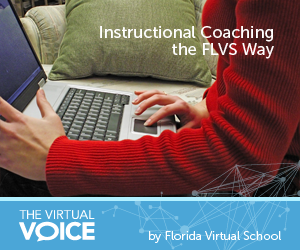Goals
Congratulations to our Contest Winners
By Florida Virtual School on September 30th, 2014
 From the simple to the spectacular, we heard from all kinds of students during our “Go Ahead: Succeed” contest. Using Instagram, Twitter, and Facebook, students submitted photos of themselves and told us how they have succeeded with FLVS.
From the simple to the spectacular, we heard from all kinds of students during our “Go Ahead: Succeed” contest. Using Instagram, Twitter, and Facebook, students submitted photos of themselves and told us how they have succeeded with FLVS.
Thank you to all of our amazing students who entered, from athletes to artists to world travelers to bookworms. We loved hearing your stories. Keep the success going and let us know how FLVS has helped you or your family in the comments below. You can also join the conversation on Instagram by following us at @floridavirtualschool. We might even share your story in a future post!
Go Ahead: Succeed with FLVS Contest
By Florida Virtual School on September 16th, 2014
 This year, FLVS is excited to host our fall photo contest allowing students to share their success stories. We know our students are fascinating people who use the flexibility provided by FLVS to do great things – and we want to hear all about it! Using Instagram, Twitter or Facebook, we are asking students to show how FLVS has helped them succeed. You can even win a tablet!
This year, FLVS is excited to host our fall photo contest allowing students to share their success stories. We know our students are fascinating people who use the flexibility provided by FLVS to do great things – and we want to hear all about it! Using Instagram, Twitter or Facebook, we are asking students to show how FLVS has helped them succeed. You can even win a tablet!
Over the past few weeks, we’ve received all kinds of great submissions that showcase how unique Florida Virtual School students really are. We’ve heard from kids who act, students who travel all over the world, and those who just want to get their education in peace. We have met girls who play football, wrestle, or compete as archers. We have students who volunteer for Special Olympics, pursue creative hobbies and career opportunities, and finish high school early. Check them out here! Continue reading
The Creativity Conundrum
By Dr. Jeanne Giardino on September 10th, 2014

When Did Students Become So Scared to Make Mistakes?
Directions: Please read the following article. At the end of the article you will be asked to give your opinion regarding creativity in schools. You will be expected to provide a response that shows thinking outside the box and is worthy of a Nobel Prize. No pressure. Think Creatively. Continue reading
Applying High School Experience to Career
By Guest Blogger on September 5th, 2014
 Many high school students face the daunting task of applying for their very first paid job with zero experience and very little preparation. Here are a few simple tips to help you translate your high school experience (volunteering, participating in clubs, playing sports, etc.) to a job application:
Many high school students face the daunting task of applying for their very first paid job with zero experience and very little preparation. Here are a few simple tips to help you translate your high school experience (volunteering, participating in clubs, playing sports, etc.) to a job application:
1. Everyday skills should not be taken for granted.
Top performers in school are organized and goal-oriented. Good students use proven time management skills. Club secretaries are detail-oriented. Athletes take initiative and follow directions well. FLVS students are computer whizzes! Instead of listing previous jobs on your resume, you can list clubs, sports, and even your GPA (if you’re proud of it). Just make sure to include a brief description for each item, and explain the valuable job skills you use on a regular basis for each task.
Why I Hate Wednesdays and Sundays
By Guest Blogger on May 14th, 2014

People read this title and assume I am talking about something completely different. Have no fear as that is far from the case here. When I am speaking to people about online learning, do you know what the “experienced” adults who have taken an online course always say? It boils down to “I hated the discussion boards.” The fact is that I agree with them. I hated them too.
Adults who have taken online courses know the all-too-familiar requirement of writing an original post by Wednesday at midnight and a thoughtful response to at least two other students by Sunday at midnight. What tends to happen on these discussion boards is that people write their thoughts prior to reading the material for the week. Then, for responses, they find people that agree with their thoughts to comment on.
Make the Choice to Move Forward
By Amy LaGrasta on April 24th, 2014
 Stop and think about your life’s journey so far.
Stop and think about your life’s journey so far.
Some of us are just getting started on school, many are at the beginning of our careers, and others are nearing retirement. The reality for all of us is that every choice we make and action we take has gotten each of us to where we are today. You, and you alone, are responsible for your happiness or unhappiness, success or failure.
Fate and luck are of no consequence. Accepting personal responsibility is the first step to success. It is the only requirement needed to achieve goals. If you say things like, “it’s not my fault” or “life is unfair,” then you have not yet accepted responsibility for your actions.
It is not too late or too hard to change.
Got Grit?
By Elise Harris on April 17th, 2014
 Bright eyed and bushy tailed I moved right from graduation to teaching geography, reading, and running a computer lab. Everyone said, your light will dim and your focus will change. Well, they were wrong.
Bright eyed and bushy tailed I moved right from graduation to teaching geography, reading, and running a computer lab. Everyone said, your light will dim and your focus will change. Well, they were wrong.
Let the record show, that was some 10 years ago and my intentions have not changed, but have only grown stronger and more awesome. Why? Because I “got” grit and I teach my students to have grit.
How else can I prepare my students to function in the interconnected online global world that is full of competition? By never stopping to achieve their goals – that’s how! Do not be pushed down in the face of adversity. Remember, it is okay and even good to make mistakes; this is how we learn. Stand up for what you believe in. If you get knocked down, get up! Life can be hard and hurtful. Learn from this and get back to work.
Interview Tips: Knowing When to Stop Talking
By Guest Blogger on April 11th, 2014
 Your palms are sweating. Your knees are shaking. You feel like you’re rambling. You probably are. STOP.
Your palms are sweating. Your knees are shaking. You feel like you’re rambling. You probably are. STOP.
Job interviews can be incredibly intimidating. You sit across the table from high-level executives and try to prove your worth. In behavioral-based interviews, you are asked several specific, action-driven questions. Your interviewers want to know the details of specific instances when you applied your natural talents and learned skills to unite stakeholders, lead teammates, and solve challenges.
The first problem you face is you’re drawing a blank. Funny, I can’t think of a single time I ever spoke to a single customer or solved a single problem… Continue reading
Instructional Coaching the FLVS Way
By Mary Mitchell on April 1st, 2014
 How does instructional coaching work in a virtual world? Have you heard about the Vir-structional coaching program at FLVS?
How does instructional coaching work in a virtual world? Have you heard about the Vir-structional coaching program at FLVS?
The Vir-structional program is designed to help those using a virtual platform to train, teach, and inform participants. The goal of the Coaching Program is to deliver high quality technology-based education by increasing customer/student learning through engaging and interactive live lessons.
Instructional coaching provides a venue for instructors to share teaching ideas and strategies with each other. The coach is someone who has expertise and knowledge in developing highly effective and engaging lessons that will lead to increased participant learning. The coachee is someone who would benefit from a coaching relationship by being open and receptive to learning new tools, techniques, and strategies to increase participants’ attendance and understanding. Continue reading
Standards, Grittiness, and the Underdog
By Guest Blogger on March 27th, 2014
 In his book, “David and Goliath: Underdogs, Misfits, and the Art of Battling Giants,” Malcolm Gladwell argues that the people we traditionally considered to be underdogs might actually have unique advantages created by the very adversity they had to overcome. Gladwell uses the allegory of David and Goliath to dramatize how David’s victory may not have been as unlikely or extraordinary as we are led to believe. Perhaps, David relied simply on an unconventional approach and his own audacity to blindside Goliath. His experience as an underdog forced him to view the situation differently and discover a creative solution to his problem. David didn’t view Goliath simply as an indestructible giant. Rather, he saw a slow opponent, dragged down by his armor, and unprepared to battle a swifter, more prepared adversary.
In his book, “David and Goliath: Underdogs, Misfits, and the Art of Battling Giants,” Malcolm Gladwell argues that the people we traditionally considered to be underdogs might actually have unique advantages created by the very adversity they had to overcome. Gladwell uses the allegory of David and Goliath to dramatize how David’s victory may not have been as unlikely or extraordinary as we are led to believe. Perhaps, David relied simply on an unconventional approach and his own audacity to blindside Goliath. His experience as an underdog forced him to view the situation differently and discover a creative solution to his problem. David didn’t view Goliath simply as an indestructible giant. Rather, he saw a slow opponent, dragged down by his armor, and unprepared to battle a swifter, more prepared adversary.
Gladwell continues his theory by describing a seeming disadvantage, dyslexia, as a “desirable difficulty.” Continue reading
